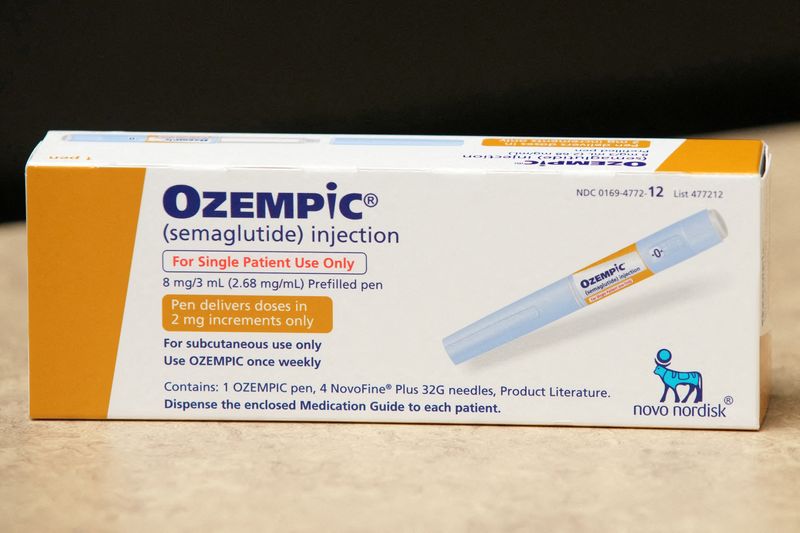Investing.com — Personal injury lawsuits over potentially severe side effects of popular weight-loss drugs made by Novo Nordisk (NYSE:) and Eli Lilly (NYSE:) are crowding out Pennsylvania courts, and the number of cases is on the rise, according to one of the lawyers representing plaintiffs in those cases.
The claims allege that Denmark’s Novo Nordisk and its US counterpart Eli Lilly failed to adequately warn people about the side effects of the GLP-1 receptor agonist, or glucagon-like peptide 1.
In February, a federal court in Pennsylvania consolidated lawsuits already pending in the federal court system into a so-called multidistrict litigation (MDL), but the MDL does not bar plaintiffs from suing in state court over the drugs.
Alexandra Walsh, a partner at Anapol Weiss who is focused on ultimately getting these cases before a jury, told Investing.com that there are currently 1,025 cases filed in court.
She added that these lawsuits primarily revolve around allegations that GLP-1 drugs cause damage to the gastrointestinal system.
The plaintiffs accuse drug companies of not providing enough information about side effects when touting the treatment’s benefits. Walsh said companies that make GLP-1 drugs “should at the very least provide people with fair, unbiased, accurate and sufficient information about the side effects so that patients, in consultation with their physicians, can make an informed decision about whether or not to take this medication.”
The GLP-1 class of drugs includes hits such as Novo Nordisk’s Ozempic and Wegovi, and Eli Lilly’s Maunjaro. GLP-1 therapy aims to help people with diabetes by helping release insulin and controlling blood sugar levels, according to Harvard University. It also works on the brain to reduce hunger and slow gastric emptying, potentially leading to weight loss.
Both Novo Nordisk and Eli Lilly have posted record profits since launching their GLP-1 products, and some analysts predict that annual global sales of these drugs could reach about $150 billion by the start of the next decade, according to Reuters.
Novo Nordisk, which faces the majority of the litigation in the MDL, argued in a statement that the drugs’ known risks are described in regulator-approved product labels, adding that it “guarantees the safety and effectiveness” of all GLP-1 medicines “when used as directed and taken under the supervision of a qualified healthcare professional.”
The company noted that the claims presented in the MDL are “without merit.”
“[W]Novo Nordisk said it “robustly refutes these claims.”
Representatives for Eli Lilly and Co., a defendant in a smaller lawsuit in the MDL, did not immediately respond to a request for comment.
